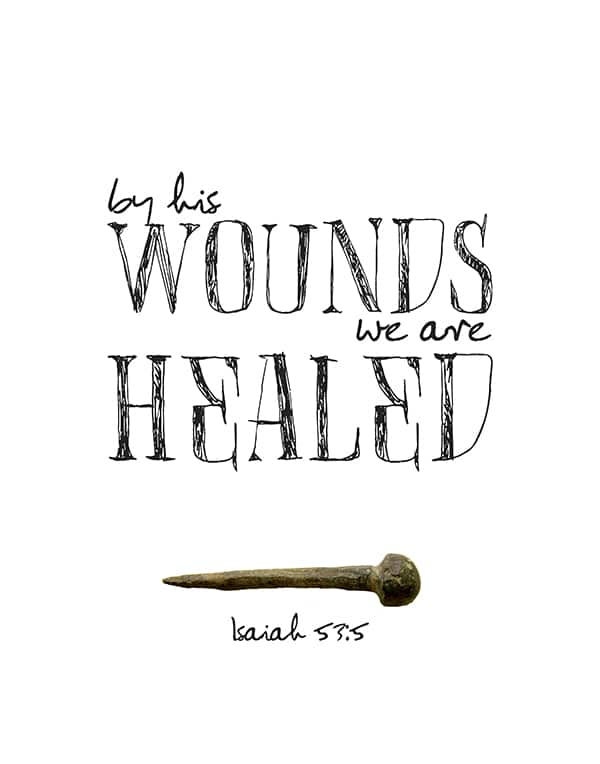We all know - even if only in a Sunday School singsong fashion - that Jesus came to die for our sin. But the Bible tells us that the blood of Jesus on the cross does not just remove the guilt of our sin but the hurt of our shame.
Jesus came to remove the stain of sin and the stains of those who have been sinned against. By his blood, we are washed clean and made utterly new. We are made white as snow. No matter what we have done or what has been done to us. For those of us who have been subjected to awful things at the hands of others, we need to hear the truth of this. When Jesus died on the cross, he embraced all of our suffering: he took on the sin of the rapist and the shame of the raped, he took the punishment of the abuser and washed the wounds of the abused.
The bible says that Jesus was like one who was despised. (Isaiah 53:3) He was like one that others would turn their faces to avoid. He was humiliated in the most base and brutal manner imaginable. He knows what it is to be ashamed. He knows what it is to feel dirty, and to be looked at with disgust. Jesus hung on the cross bloody and mangled for the whole world to see, a convict condemned to death, a common criminal made an example of, a beaten lump of humanity exposed to the eyes of all the onlookers, the subject of gossip and slander, the one people muttered about in streets and wouldn't allow their children to look at lest they too somehow became contaminated.
But by his death, he cleanses us of all our rubbish. We are tarnished by regret at what we have done, and by the shame of what others have done. Jesus says, Come to me and be clean. Come to me and let me tend to your wounds, let me start to wash away the pain of your past. Come to me and let me make you new.
Reflection: Jesus, thank you that your promise to make us new. Thank you that there is no stain that you cannot remove. Thank you that as we look to you we are made radiant; our faces are never covered in shame. Thank you that you died to wash us clean.
Gungor, Beautiful Things
All this pain
I wonder if I’ll ever find my way
I wonder if my life could really change at all
All this earth
Could all that is lost ever be found
Could a garden come up from this ground at all
You make beautiful things
You make beautiful things out of the dust
You make beautiful things
You make beautiful things out of us
All around
Hope is springing up from this old ground
Out of chaos life is being found in You
You make beautiful things
You make beautiful things out of the dust
You make beautiful things
You make beautiful things out of us
You make me new, You are making me new
You make me new, You are making me new
















